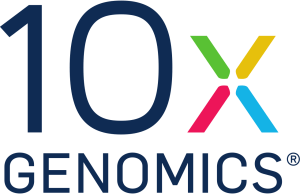Panel Discussion: Single-cell and spatial techniques in the investigation of tumor therapeutic response
In this Panel Discussion we assemble experts from across the spectrum of cancer research to explain how they use these techniques in their research, provide key tips for best practice when using them and troubleshoot any challenges that can arise with their use.
What will you learn?
- The latest applications of single-cell and spatial techniques in the investigation of tumor response to therapeutics
- Best practice and troubleshooting tips for the use of these techniques
- Exciting discoveries in cancer research made using these techniques
Who may this interest?
- Biopharma specialists
- Drug discovery and development researchers
- Cancer researchers
- Translational research
Panelists
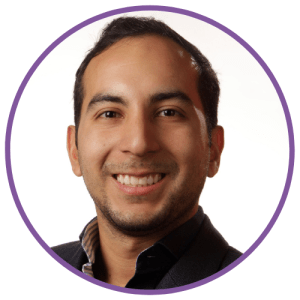
Luigi J. Alvarado
Market Segment Manager, Oncology
10x Genomics (CA, USA)
Luigi Alvarado is currently the Market Segment Manager for Oncology at 10x Genomics. Previously, he was part of the Molecular Biology R&D team, leading a series of research and product development projects leading to single cell and spatial transcriptomics products.
He was a postdoctoral fellow in the National Heart, Lung and Blood Institute of the National Institutes of Health, where his work focused on hematopoietic stem cell therapies. He received his doctoral degree in biochemistry from the University of Maryland at College Park where his work focused on RNA structural studies via nuclear magnetic resonance.
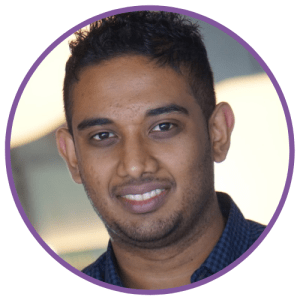
Arutha Kulasinghe
Senior Research Fellow
The University of Queensland Diamantia Institute (Brisbane, Australia)
Arutha Kulasinghe is a Peter Doherty National Health and Medical Research Council (NHMRC) Research Fellow, and leads the ‘Clinical-oMx Lab’ at the University of Queensland.
Kulasinghe has pioneered spatial transcriptomics using digital spatial profiling approaches in the Asia-Pacific region, contributing to world-first studies for lung cancer, head and neck cancer, and COVID-19.
His research aims to understand the underlying pathobiology by using an integrative multi-omics approach. Dr Kulasinghe has published his research in 60 manuscripts and is supported by the NHMRC, Australian Academy of Sciences, Cancer Australia, Cure Cancer, the Medical Research Future Fund and numerous philanthropic and hospital foundations.
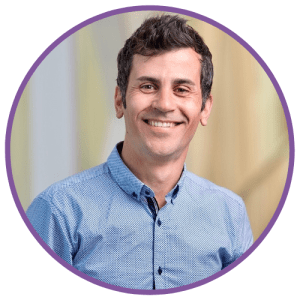
Luciano Martelotto
Head of the Single Cell and Spatial-Omics Laboratory
Adelaide Centre for Epigenetics, ImmunoGENomics Cancer Institute, The University of Adelaide (Australia)
Luciano Martelotto has recently been appointed as the Head of the Development Laboratory at the ImmunoGENomics Cancer Institute (SAIGENCI), which is part of the Adelaide Centre of Epigenetics. His single-cell and spatial-omics lab at ACE/SAIGENCI will be a dedicated incubator for the development and early-stage evaluation of new single cell, spatial and genomic tools and methodologies.
The focus of Luciano’s team will constantly evolve due to the fast-paced advancements of the genomic field, but the focus will remain on developing technologies that have the potential to advance research and its application for the wider scientific community.
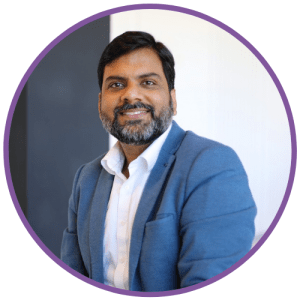
Ankur Sharma
Laboratory Head
Harry Perkins Institute of Medical Research (Perth, Australia)
Ankur Sharma is a Lab Head of the Onco-Fetal Ecosystem Laboratory at Harry Perkins Institute of Medical Research and Curtin University (both Perth, Australia). Ankur is also the Genomics Lead of the Liver Cancer Collaborative (Perth, Australia). Ankur’s research is directed towards the exploration of similarities between the fetal and tumor microenvironment, with a particular interest in the Onco-Fetal reprogramming of the tumor ecosystem. Ankur is an early adopter of single-cell genomics as an approach to understand the evolution and ecosystem of tumors.
In 2019, he was awarded the Nanoscale and Microscale Research Centre (Nottingham, UK) Young Investigator fellowship, and in 2020, he was appointed as a Research Scientist in the Spatial and Single-Cell Systems Domain at the Genome Institiute of Singapore (GIS).
This webinar was recorded on Tuesday 12th July 2022
